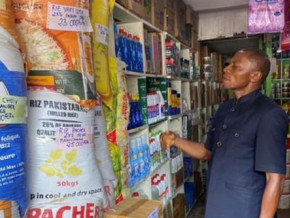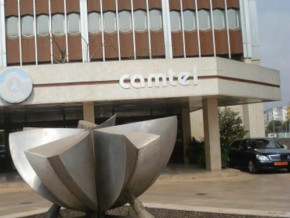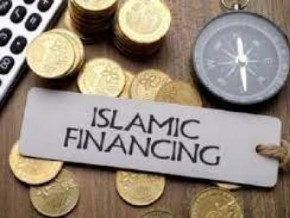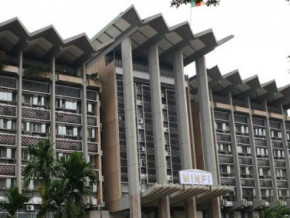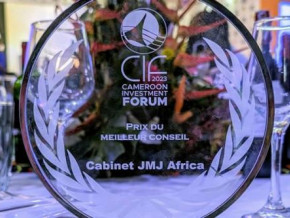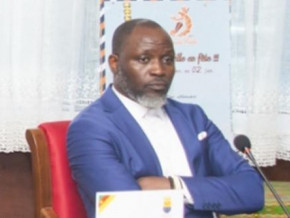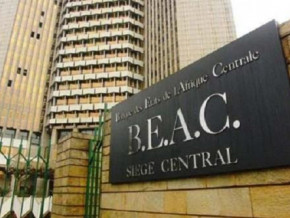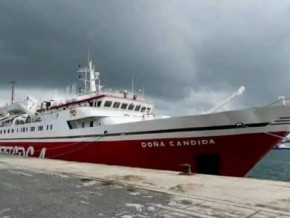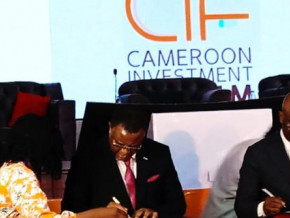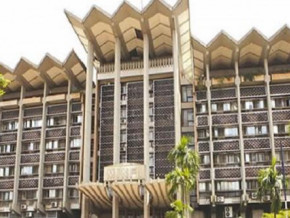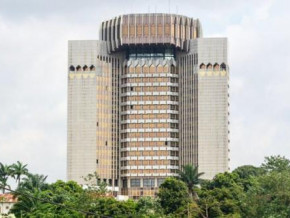
CEMAC’s regulation on microfinance institutions “negates the base of the MC² model and endangers the survival of a network that took Cameroonians 25 years to build” (Évariste Takam)
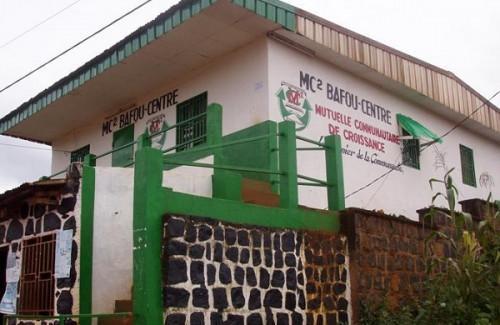
(Business in Cameroon) - In a letter addressed to Cameroon’s prime minister, Cameroonian billionaire Paul K. Fokam announces the end of his partnership with the about 125 Mutuelles communautaires de croissance (MC2) microfinance institutions that fund rural development in Cameroon. This end of partnership seems a bit surprising since the partnership exercised via Afriland First Bank, owned by the billionaire, was not without compensations.
Indeed, even if Paul K. Fokam is concentrating on the MC2s’ role in the fight against poverty, Afriland First Bank became one of the leading local banks thanks to this partnership. Since the creation of the first MC2 in 1992, every such institution has been obliged to make Afriland First Bank its domiciled bank. This provision of the partnership made MC2 a tool to bring in users’ savings to Afriland First Bank, though the savings are now a small portion of the deposits in this bank. According to the bank’s sources, in 2018, savings brought in by MC2s was less than 6% of the deposits made.
In his letter to the government, Paul K. Fokam explained the reasons for such decision. He indicated it was due to the new regulations on microfinance institutions with CEMAC. Months to the end of the two years (January 1, 2018-January 1, 2020) allowed for microfinance institutions to comply with the new regulation, Paul K. Fokam estimates that those rules automatically excluded him from MC2s’ partnerships and even threatened their economic model.
Business In Cameroon met with Évariste Takam, executive secretary of Appropriate Development for Africa Foundation (Adaf), an association that supports the development of MC2s. He explains how the new microfinance institutions’ regulations are threatening microbanks.
According to him, “this regulation endangers the survival of a network that took 25 years for the Cameroonian population to build.”
Business In Cameroon : You indicate that MC2s are special microfinance institutions. Can you tell us a bit about their economic model?
Évariste Takam : First of all, there is cultural and identity anchorage. They are microbanks created and managed by residents of a community in compliance with customs and habits. Then, there is their swiftness and readiness for innovation. Disputes are settled by an authority you will not find in other microfinance institutions : this authority is the elder council. Above all, the philosophy around such model makes it a specific tool. This philosophy is: Victoire sur la Pauvreté (VP) est possible si les Moyens (M) et les Compétences (C) de la Communauté (C) sont mis ensemble (VP = M x C x C = MC²). It translates into : “to couple the community’s means and competences to fight poverty.” It was elaborated by Dr Paul Fokam. As a result, savings plays a fundamental role and populations are aware that their future only depends on them, not on international aid.
Hopefully, you understand why those microbanks are located in rural areas and the targetted populations are the least-favoured communities. To date, we have 125 functional units around Cameroon. The model was also exported to other African countries, namely, Liberia (8 functional units), the Republic of Guinea (61 functional units), the Democratic Republic of Congo (2 ongoing projects) and Côte d’Ivoire (1 ongoing project).
BIC : Can we have an estimate of the average volume of deposits and credits granted yearly by these institutions in the past five years to be able to grasp their importance in Cameroon?
E.T : By May 31, 2019, the volume of deposits was XAF50 billion, representing an average increase of XAF2.3 billion yearly in the past five years.
While to that date, XAF250 billion of credit has been granted since 1992. This is a yearly increase of XAF19.9 billion over the last five years. Three million people got out of poverty over the past 27 years with this model
BIC : How does the new regulation on microfinance institutions within CEMAC threaten this economic model ?
E.T : I would like to signal that this regulation is not entirely negative. Rule Cobac -EMF R2017/04- on the management of microfinance institutions instaurates a better organization of managing bodies, their constitution, mission and tasks. However, among the numerous amendments to this law, there are two provisions that constitute a real threat to the survival of our model. The first is the obligation for first-class microfinance institutions to operate exclusively inside a network. The second provision is the obligation to operate as a cooperative with an administrative board.
BIC : Concretely, what does that involve ?
E.T : This affects the basis of the MC² model, based on the assumption that one is responsible for their own destiny. By relying on the governing institution, this principle is violated because only the governing body will take all the decisions. In addition, every MC2 is managed by the community in strict respect for local customs and habits. With the new regulation, MC²s are now governed by international laws. They are thus detached from customs. This obligation to belong to a network before even existing violates all the principles and makes the MC² ineffective.
BIC : You also said that law 01/17/CEMAC/UMAC/COBAC does not respect Cameroon’s constitutional laws…
E.T : In its preamble, Cameroon’s constitution consecrates freedom of association which translates into freedom to join or not to join an association, freedom to choose the type of association to join and freedom to leave.
Unfortunately, articles 27 and 33 of this law obliges first-class microfinance institutions to operate “exclusively within a network.” This constitutes a violation of the constitution’s provisions that guarantees “freedom of communication, freedom of expression, freedom of the press, freedom of assembly, freedom of association, and union freedom.”
BIC : Will those freedoms disappear with the appearance of governing bodies in these institutions?
E.T : Ipso facto, promoters and owners of these governing institutions will become masters or managers of these populations whose legitimate aspiration was to take charge of their destiny by creating their own autonomous microbanks, in their own area and bearing the risks and the profits themselves. Yet, the constitution has forbidden such enslavement by casting freedom of association in stone. If any international law is allowed to violate Cameroon’s constitution, it would not be able to guarantee citizens’ rights and will thus become an empty shell.
This regulation negates the base of the MC² model and endangers the survival of a network that took Cameroonians 25 years to build bit by bit and which, nowadays, constitutes one of the foundations of local development and an instrument of national pride. This type of organization guarantees resistance to multiple external and internal shocks.
BIC : In the letter, sent to the prime minister by the sponsor of this network Dr Paul K. Fokam, whose extracts have been published by Le Jour, Dr Paul K. Fokam added that the new regulation was exposing institutions that use the MC² model to systemic risks. How will such risk emerge?
E.T : In the initial model, the bankruptcy of a unit located in a said area would not affect a unit in another area. With the mentioned regulation, every unit’s management error will affect all the remaining units. Worse, the bankruptcy of the governing unit or of most of the big units in the network will lead to the disappearance of all the affiliated units.
BIC : Currently, what is the specificity of a MC2 ?
E.T : The MC² is created and managed by residents of the area where it is created. The management rules are elaborated based on local customs and habits. The decision rules are based on the principle of "one people, one voice" with the majority’s decision ruling over the others. Disputes resolution is ensured by an elder council constituted of dignitaries and traditional or religious rulers. This dispute resolution policy is inscribed in statutes thus helping avoid long, costly, complex and unsuitable processes.
BIC : Is this management process also endangered?
E.T : Of course! The new regulation now submits MC²s to the Ohada regulations. With the Ohada regulation, to settle a dispute, MC2s will have to resort to an international court and go to Abidjan for the final ruling.
Community members will now be excluded from the decision process, which is essential for the community. Functioning rules, guarantee taking and dispute settlement will be handled by the governing body or by the international community.
BIC : Talking of organization, an important place is also devoted to support institutions namely, Afriland First Bank and Adaf, for which you are the executive secretary. What will they become with the new regulation?
E.T : In the MC² model, support institutions (Afriland First Bank and Adaf) play a key role. They ensure a fine-tuned combination of the community’s customs and habits with modern management principles and technics thus guaranteeing the MC2 integration and continuity. They also ensure multifaceted technical assistance for the creation, management and provision of partner’s action research products. They also guarantee the MC2’s credibility and their connection to the international financial system. By excluding the support institutions, the new regulation definitely denies MC²s of those advantages without even finding replacement solutions thus exposing them to all kinds of predators and exposing them to individual and collective death.
BIC : According to sources quoted by Eco Matin, Paul K. Fokam is ending his partnership with MC²s because he is refusing to subject himself to the transparency obligation. What is your answer to this?
E.T : I wonder, management transparency? Dr Fokam is not involved in the management. Transparency in accounting. Accounting is handled by MC2s’ auditors. Transparency in the mutuals? They are managed by members. What transparency are they talking about? Transparency towards the regulator? Transparency only means nothing. It is vague.
BIC : In his letter to the prime minister, Paul K. Fokam asks the government to take over the MC2s. Will that solve the problem created by the new regulation?
E.T : In a country, the government is the institution in charge of the fight against poverty. Any other body doing so only helps the government. Therefore, only the government can solve this problem.
Interview by Aboudi Ottou
Mags frontpage
- Most read 7 days
- shared 1 month
- read 1 month




